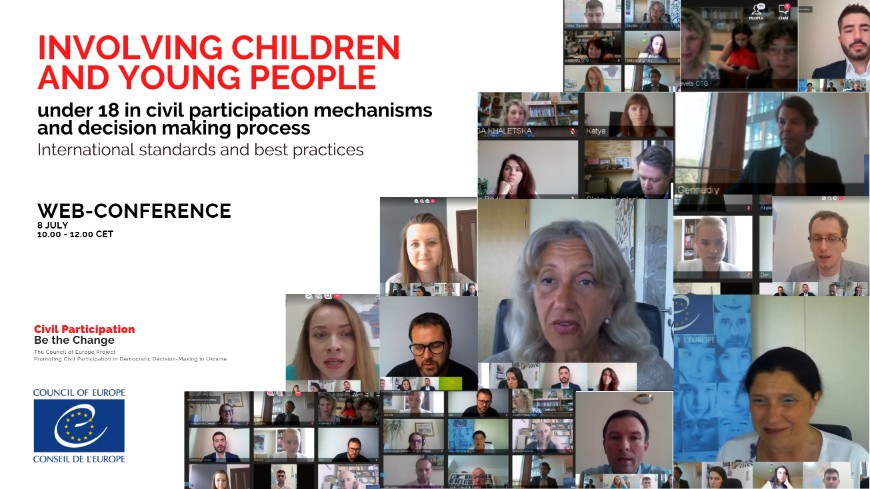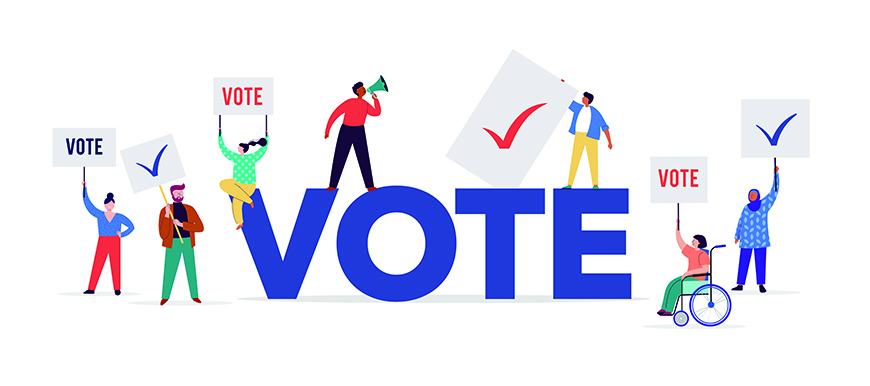The decorrelation between citizens’ preferences and decisions taken by public authorities, the decreasing electoral turnout and the lowering trust in public authorities represent main problems that modern representative democracies are facing nowadays. In her keynote speech Claudia Luciani, Director of the Human Dignity, Equality and Governance Directorate, Council of Europe, emphasised that “today children and youth are agents of change who play a key role in reactivating our democracies. Civil participation mechanisms must empower young people to play an active role in their communities’ development while gaining the experience, knowledge, values and life skills.”
Increasing the level of input from civil society and citizens, including from young women and men to guide public decisions can be one way of combating the new challenges that have been facing our representative democracies. Nevertheless, in our societies, children and the young women and men still often lack the opportunity to engage in civic action and to influence the social and political change needed to improve their situation and that of the communities they live in, often because public authorities fail to provide enabling environment, legal and practical framework, allowing children to have their say and bring their voice to decision-makers. To help member States remove obstacles and address challenges to effective participation of children in the decision-making mechanism, on July, 8 2020 the Directorate of Human Dignity, Equality and Governance within the Council of Europe project “Promoting civil participation in democratic decision-making in Ukraine” in cooperation with the Directorate of Democratic Participation organized the international web-conference “Involving children and young people under 18 in civil participation mechanisms and decision-making.” The conference aimed to highlight the CoE standards in the area of youth participation in the decision-making process, specifically, concerning child participation in the decision-making mechanisms at the local level and best practices for child participation and engagement in local public life. More than 70 representatives from different countries and continents joined the web-conference, participated in lively discussions, shared best practices and valuable experience of using civil participation mechanisms for children and youth.
Apart from the international standards, the event showcased the approaches of governments, inter alia, in Ukraine for setting the legal framework for youth participation, success stories and innovative practices for involving children in the decision-making process. In addition, the Council of Europe Toolkits “School Participatory Budgeting” and on a “Vote outside the box” were presented. Antje Rothemund, Head of Youth Department, announced that soon the Department will start implementing the project “Youth for Democracy in Ukraine.” In her speech she underlined that “the support to young people should start in very young age so that they can get the autonomy when becoming adults. One is not born as active citizen, civil participation in decision-making is something that should be learned and experienced.” Dan Moxon, Director of People, Dialogue and Change, Council of Europe expert, presented the latest publication of the project “Promoting civil participation in democratic decision-making in Ukraine” which covers international standards and best practices for youth participation in decision making.
The Council of Europe standards, in particular, Recommendation on participation of children and young people under the age of 18, adopted by the Committee of Ministers of the Council of Europe in 2012, represent clear guidance for the member states to involve children in public decision making, providing children with the right to take civic action, participate in public decision-making and be part of shaping democratic societies. To enhance these standards, the Council of Europe offers a range of innovative tools that support potential of children and young people and ensure the inclusion of this knowledge into our political institutions. Drawing on the CoE standards and best European practices, the Elections and Civil Society Division designed and is currently implementing in some pilot municipalities in Ukraine the Toolkit on School participatory budgeting – the step by step methodology that can be adapted to the needs and peculiarities of any community in any country, the English version of which will be presented shortly. A new CoE Toolkit “Vote outside the box” is designed to help the authorities in attracting young voters to vote consciously and responsibly. Moreover, the Toolkit “Participation of young women and girls from disadvantaged groups in political and public decision-making processes at local level” will be available soon.





